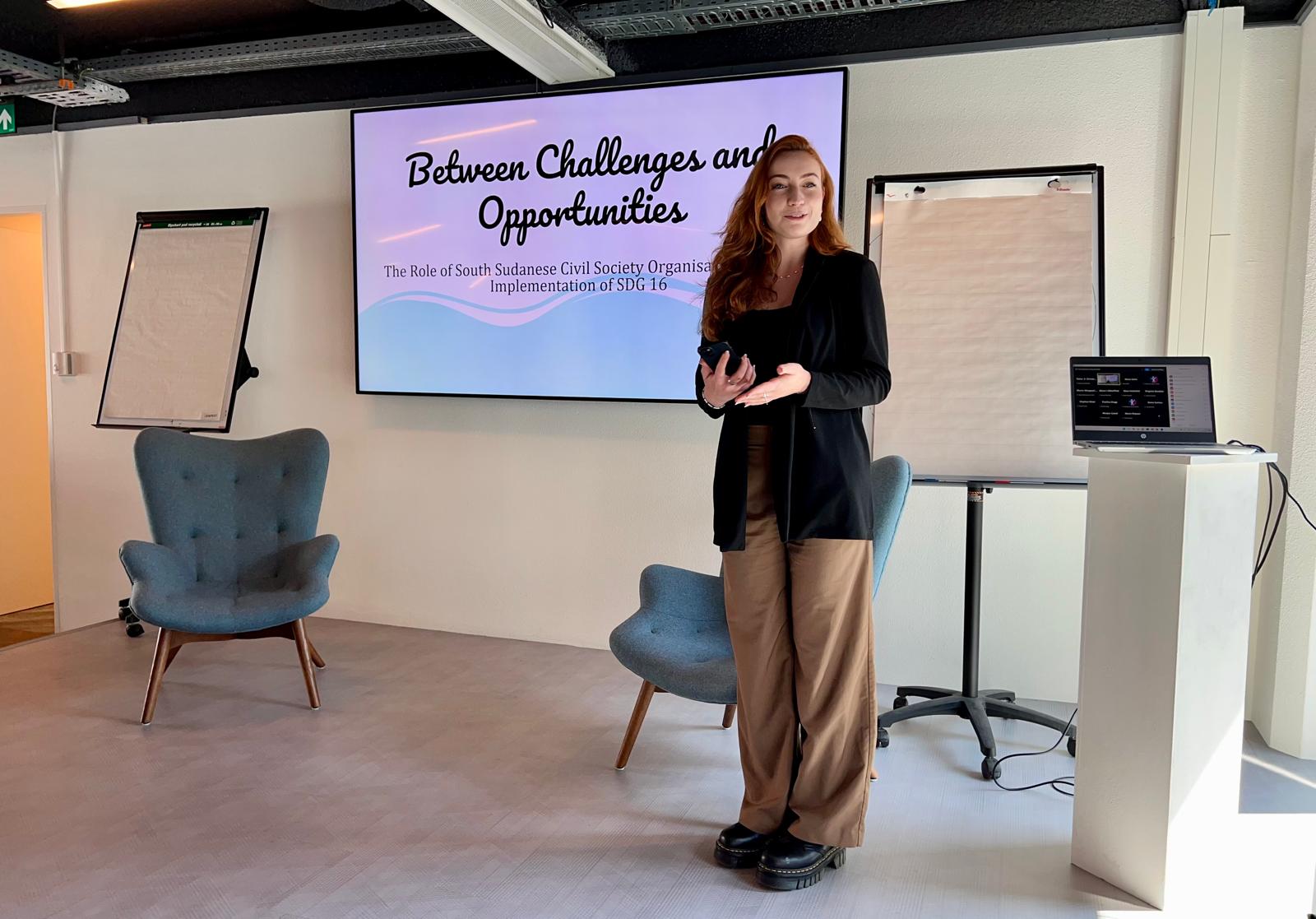
The Role of South Sudanese Civil Society Organisations in the Implementation of SDG16
Since March 2024, CSPPS partnered with the International Research by Students Programme (IRSP), one of the four platforms of the Study Association of International Relations & International Organization Clio, on a research project with five students from the University of Groningen (NL). The research project focused on the thematic review of SDG16 in the context of South Sudan and the role and implications of civil society within this. This research led to the production of a report explaining students' methodological approach findings and recommendations. Moreover, on Thursday 23 May, an online presentation took place at the CSPPS premises in Cordaid [The Hague, Netherlands] in which the students presented their work.
The report in brief
In the wake of South Sudan’s inclusion in the 2024 Voluntary National Review (VNR) process, the role of Civil Society Organisations (CSOs) in implementing SDGs became even more critically important. It is particularly true for SDG16, which aims to promote peaceful and inclusive societies, provide access to justice for all, and build effective, accountable institutions, and which is fundamental in the context of South Sudan’s turbulent post-independence history. Indeed, South Sudan is the world's youngest nation. The country has faced continuous challenges since its independence in 2011. If major conflicts formally end with a ceasefire and the establishment of a unity government in 2020, local violence persists, exacerbated by deep-seated ethnic divisions and weak governance structures.
In this regard, CSOs are key stakeholders in the achievement of SDG16 in South Sudan, with various components of the goal either implicitly or explicitly forming part of their agendas. They indeed provide essential services, promote inclusive policies, and advocate for human rights and good governance among others. In particular, CSOs are instrumental in the VNR process which offers an opportunity for South Sudan to assess and showcase its progress, share challenges, and identify lessons learned. CSOs indeed bring a bottom-up perspective that is crucial for effective policymaking and implementation. [Struggling with the VNR process? Read this CSPPS two-pager aiming at demystifying the VNR : Demystifying the Voluntary National Review]
However, although conditions for CSOs operations have improved over time, veritable obstacles remain in place, especially in their contributions towards SDG16. Five have been identified as major:
- Ethnic tensions within South Sudan.
- Presence of armed rebel groups.
- State interference and bureaucratic barriers.
- Lack of human capital.
- Lack of funding.
This report addresses these above mentioned issues, utilising the insights of local professionals to present a grounded and contextually specific series of recommendations on how CSOs can maximise their effectiveness in local and national communities. The recommendations are tailored to various stakeholders engaged in the peacebuilding process in South Sudan, such as South Sudanese CSOs, International NGOs, the United Nations and States bodies. They are multiple and diverse, and focus particularly on enhancing support and funding, strengthening legal frameworks, building capacity and promoting inclusivity.
Click here to read the full report.

